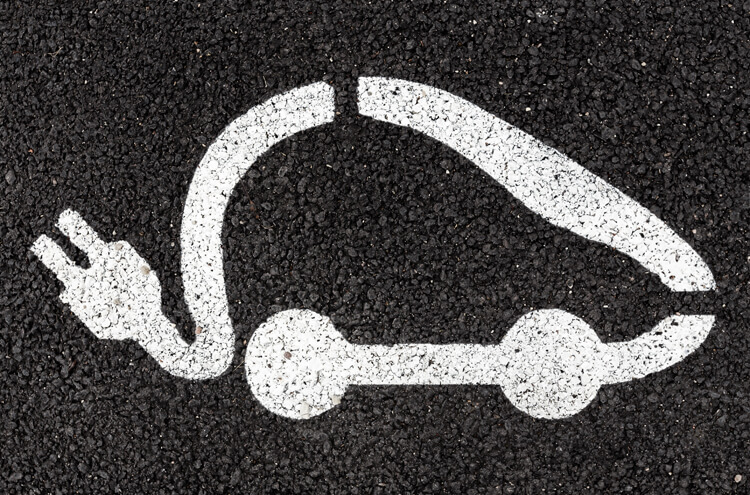Electric and hybrid cars have been available for over 20 years, which means the used market for them is continuing to grow. There are many different varieties of vehicles to choose from, so what are the important points to consider when buying an electric or hybrid car? We outline everything you need to know below.
What’s the difference?
Before getting into the nitty gritty of the vehicles, the first thing to know is that there is more than one type of hybrid vehicle. There are a handful of different types of hybrid engines on the market, but the two most common types that you’ll typically see are regular and plug-in.
Regular hybrids.
These still have an internal combustion engine that require gasoline to run, like a standard car, but they also have an electric engine as well. This is powered by batteries that kick into action when driving at lower speeds. So, as you drive the car using the gasoline motor, the batteries get recharged.
Plug-in hybrids.
These bridge the gap between fully electric vehicles and hybrids. They still have an internal combustion engine like regular hybrids and standard vehicles, but instead of a battery that charges while you drive, you charge the battery for the electric motor using a standard plug at home. Plug-in hybrids can drive further from one full charge and fill-up (combined) in comparison to regular hybrids. Once you drain the battery on your drive, or you forget to charge your car overnight, the gasoline engine will kick in and let you keep driving.
Electric.
Say good-bye to gas stations and hello to charging cables! These cars are fully electric meaning you don’t need gasoline to drive, simply plug in your car and charge the internal battery. At home, the plug-in receptacle can vary depending on the type of battery the vehicle has, but it can be a standard 120 volt three prong plug or a 240 volt outlet similar to a stove or dryer. On the road, there are DC (direct current) charging stations that charge faster, so you don’t have to wait around for your car to charge back up!
Things to know when buying a used hybrid or electric vehicle
- Range or battery size
- Battery health
- Know when to charge
- Know where to charge
- Vehicle age
- Warranty
Whether you are buying a new or used electric or hybrid vehicle, if it has a smaller battery, it will have a shorter range. To illustrate this, imagine that you have two identical cars except one uses AAA batteries, while the other uses C batteries – the C batteries are bigger, so they will get you further on a single charge. This is the case with hybrid and electric cars. If you’re going to be relying on an electric vehicle to get you from place-to-place, you’ll need to know the type of battery it has and average range it can provide.
Like many electronics, the life of the battery will lessen over time as it’s charged repeatedly. The nice thing is that if you’re looking to get behind the wheel of a hybrid or electric vehicle, you can get diagnostics run on the battery to see what its health is at that time. Some dealerships will have that information already handy when you arrive, along with a vehicle history report, but if they don’t, make sure that you request to see this report before you sign the dotted line. The healthier the battery, the more life you can get out of it.
You may need to plan ahead when charging your vehicle. Depending on where you live, charging overnight instead of during peak utility rate times could help you save on your hydro bill. Since your electricity usage will be increasing, it’s best to try and charge when the rates are at their lowest.
If you’re going on a road trip, be sure to add ‘research charging stations’ to your preparation list. Thankfully, as more electric vehicles hit the road, more stations are appearing, making longer road trips possible. ChargeHub has created a handy, interactive map that can show you where the nearest station is.
As newer versions of hybrid and electric vehicles hit the market, the models get more improvements and innovations. That also means older vehicles aren’t equipped with the same level of battery technology. This doesn’t mean they’re not worth buying, they just might be more suited for low kilometer users. Think about how much you’ll be using this vehicle and whether you’d need something with a bit more power than an older model which might work better as a city driving-only car.
On top of the normal warranties that you would see when buying a used car, there’s another level of coverage when it comes to warranties for hybrid and electric vehicles; you can get the battery covered! These typically don’t cover how much charge is lost from use, but it can protect from defects that may occur in the battery, saving you from unwanted headaches down the road.
There are many reasons to get behind the wheel of a hybrid or electric vehicle. Make sure that, before you do, you’ve made sure that it suits your needs and you’re set-up for the extra steps involved with owning one. You’ll probably want to brush up on the other parts of buying a used car, so we’ve created a handy guide for you to refer to!




